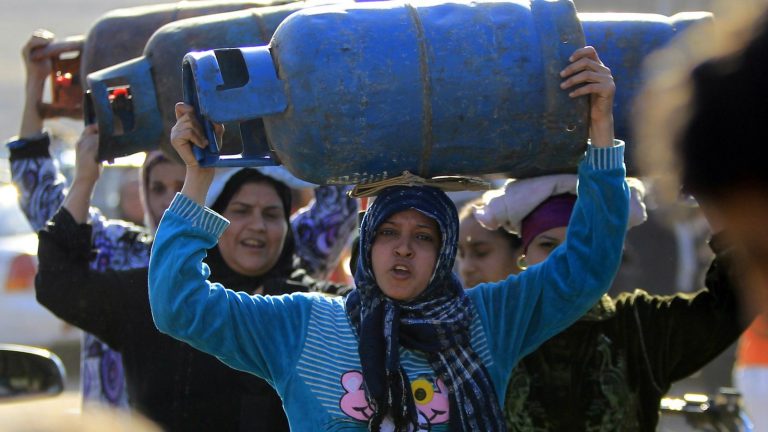
For the third time sine 2015, Egypt has raised fuel prices. (Photo: Reuters)
Cairo (People's Daily) - Egypt's Ministry of Oil announced steep increases in fuel and cooking gas prices on Saturday. Prices for cooking gas increased more than 60 percent from 60 to 100 pounds ($3.30 to $5.60) per cylinder. Ninety-two octane gasoline increased about 34 percent from 5 pounds to 6.75 pounds ($0.28 to $0.38) per liter.
Since the measures were declared at the beginning of Eid al-Fitr, a traditional Islamic annual festival that marks the end of Ramadan, the reaction has so far been muted and the atmosphere generally quiet and stable.
In return for getting a three-year $12 billion bailout loan secured in 2016, the country was required by the IMF to adopt a series of “economic reforms" characterized by austerity.
The IMF periodically sends delegations to review the program to decide whether or not to proceed with the funding. The Egyptian government has increased fuel prices three times since austerity measures were announced in late 2015.
This is not the first time that IMF financial aid has ended up raising the cost of living in the recipient country or creating instability. In order to meet IMF requirements on public debt ratio, the former Jordanian prime minister Hani Mulki proposed a new law: anyone with an annual income of $11,000 or above would have to pay income tax, while businesses would face steep tax hikes.
The law significantly increased the burden on Jordan's middle class and the poor, which acted as the trigger for recent demonstrations resulting in Mulki’s resignation.
In an attempt to secure a $12 billion three-year loan from the IMF, Egypt has kept a lid on its state budget deficit by cutting subsidies, introducing new taxes and liberalizing the Egyptian pound over the past two years. As a result, the same period witnessed a noticeable escalation in inflation and repeated rumors of a surge in prices in Egyptian society, the latest one during this year's Ramadan.
Even according to IMF economists, financial crises around the world have increased over the past 25 years, a period in which the IMF has committed record high resources to eliminate them. In many cases, the recipients of IMF loans are worse off afterward than before. Why does assistance intended to bring developing countries back to prosperity usually push them off the road?
The reason is simple. A financial crisis usually occurs as a consequence of poor policymaking and even corruption. If the IMF were to bail out a country from a forthcoming crisis, it would provide an opportunity to the country's political leadership to shrug off their responsibility for economic mismanagement. The leaders may thus lack motivation to streamline governance.
More importantly, the IMF has not paid much attention, despite its claims, to improving financial structures in developing countries, but paid too much attention to expensive bailout operations, more precisely, the repayment of bailouts.
With more emerging markets joining in, it is time the IMF maximized institutional effectiveness, strengthened accountability for lending decisions and limited interference into sovereign economic affairs. Such reforms, while revitalizing the IMF in global economic governance, would help bring more societal stability and economic growth in the third world.


